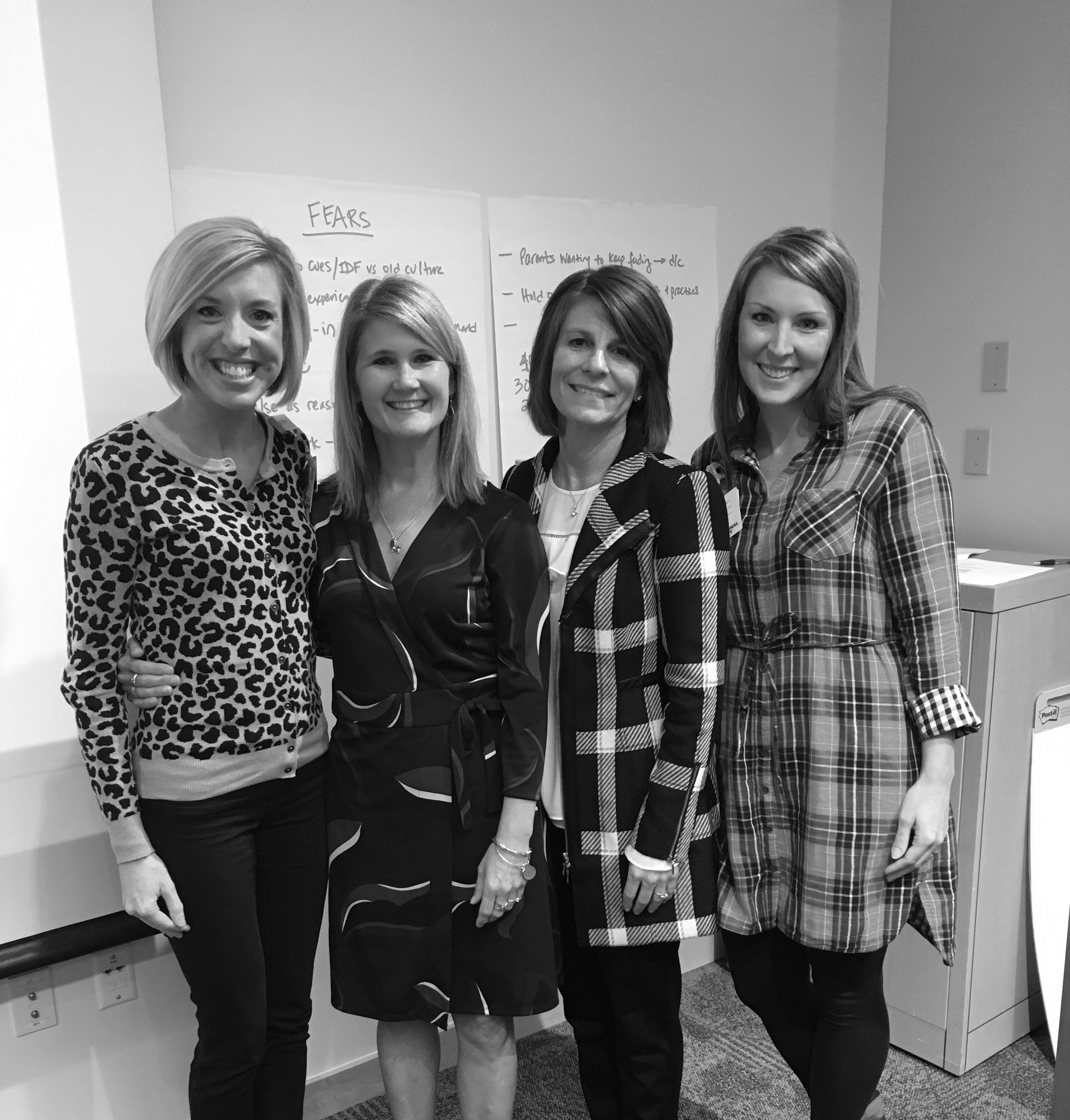Last week, we had the opportunity to speak to 65 feeding champions from a large hospital system in the Midwest. The group included neonatal nurses, therapists, lactation consultants, and dietitians from 5 different but related NICUs.

Left to right: [Elizabeth Ziegler, Sue Ludwig, Kara Ann Waitzman, Renee Rose)
Each feeding champion had completed the comprehensive Online IDF Course before we arrived. Therefore, we were able to have a higher-level discussion about how to successfully roll out this large and important initiative.
A few insights and lessons emerged from the workshop that may help you on your journey:
- Education is Priority One: After completing our NICU Oral Feeding Practice Review, each group earmarked ‘education for every bedside staff member using the Online IDF Course’ as their #1 priority. They reported making this decision because they fully understood the complexity of neonatal feeding and the sheer amount of education that must be consistently delivered in order to change culture and advance practice.
- Champions Matter: As feeding champions, they knew they were going to lead the change in feeding culture after all 400+ staff completed the Online IDF Course. However, we’re not sure they were initially aware of how valuable their leadership style and depth of knowledge will become to their peers and the process. Their dedication to each other and the babies and families they serve was evident. The process is in very good hands.
- Everyone Fears Change: Whether you’re:
- a newer nurse that fears what the veteran nurse will say if you try to suggest a change in practice
- a neonatal therapist that fears the loss of perceived control when feeding readiness is decided in real time versus by order
- an experienced nurse that wonders if the previous 30 years of feeding knowledge is obsolete (it’s not!),
- a lactation consultant that fears breastfeeding will somehow get pushed aside (quite the contrary!)
– we all fear change. To assuage those fears, acknowledge them up front and then look to the evidence and the infant’s perspective for answers. Keep a list of fears and concerns and address it regularly and objectively. Ensure that all feedback stems from the desire to make feeding experiences safe, functional, nurturing, and developmentally and individually appropriate. You can do this. We are here to help. There is no need to reinvent this wheel.
In the words of Margaret Mead, “Never doubt that a small group of thoughtful, committed citizens can change the world; indeed, it’s the only thing that ever has.”
Onward.